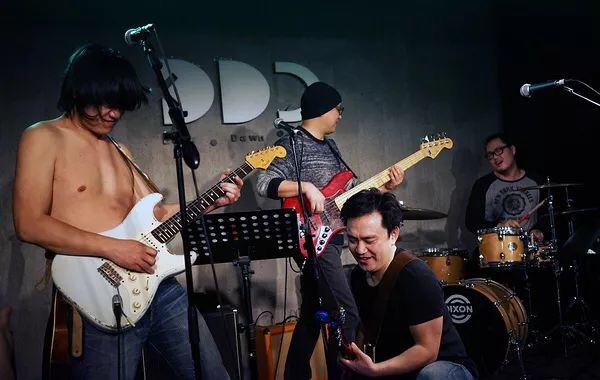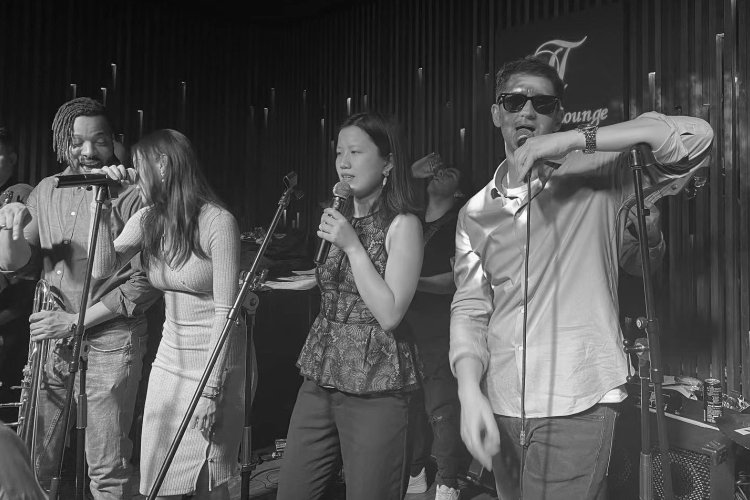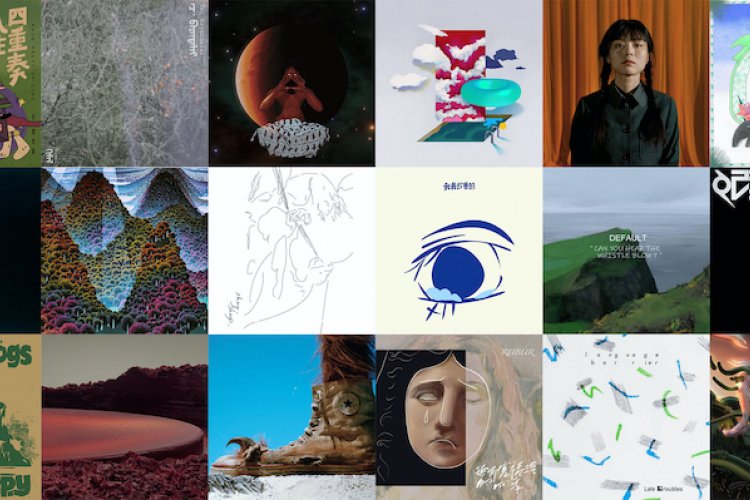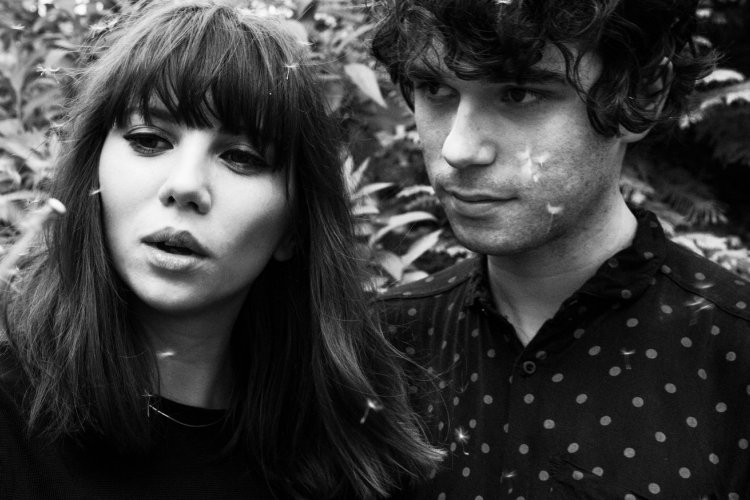Liu Xingke Discusses Putting 5,000 Years of Chinese History Into One Song Ahead of Jan 19 Jianghu Gig
Liu Xingke is an old-school rocker with a poet’s soul. The veteran singer-songwriter got his start in the early 2000s, when now shuttered venues like Chaoyang Park’s Big Easy Bar were the focal points of the capital’s rock scene. Today, he still regularly busts out art rock riffs at a small studio near Dashilan with his bandmates, many of whom have gone on to coordinate major Chinese music festivals and play with chart-topping Chinese stars.
Despite their massive successes elsewhere, the members of his eponymous band (Liu Xingke You) still enjoy these jam sessions with their old friend, in no small part because Liu pens ambitious anthems that in turn lyrically encompass the entirety of China’s roughly 5,000-year history; serve as reinterpretations of Chuck Berry classics; and capture the essence of author Marcel Proust’s best works. Ahead of his band’s Jan 19 gig at Jianghu Bar, Liu tells us about the inspiration for those heady songs, what Beijing’s scene was like at the dawn of the new millennia, and more.
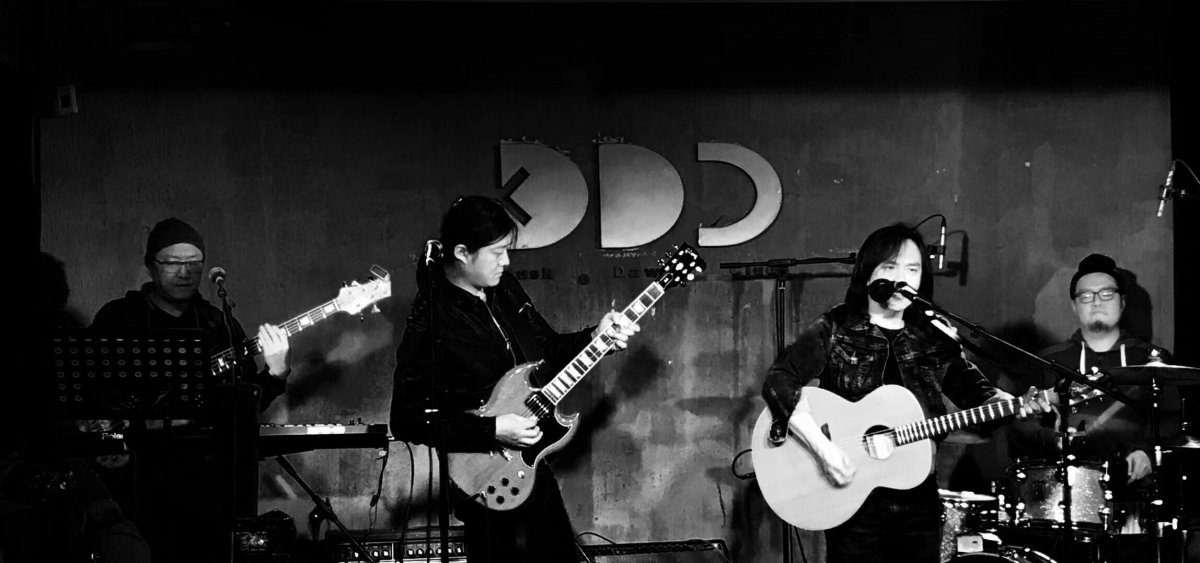
Who are your biggest influences?
I have so many. Some Chinese, and some Western. Cui Jian is one of my heroes, for sure. I heard his music when I was very young. In the very beginning I didn’t understand it, I didn’t get what rock 'n' roll was – I found it to be too noisy.
I was 15 at the time and more partial to Hong Kong and Taiwanese pop. But once I went to college I saw some seniors playing The Beatles and Chuck Berry in a cover band, and that opened a new door for me. I felt it was strange, but I liked it because it touched a new part of my heart. So I turned from Hong Kong pop to rock 'n’ roll, and began exploring classic rock stars like Cui Jian and others.
But there is also some Taiwan and Hong Kong artists I still like, especially Luo Dayou [Lo Ta-Yu in Cantonese].
You admire his singing?
No, he’s not good at singing [laughs]. But I think he’s a good composer and I like some of the songs he has written. He writes some very lovely folk songs. It feels special, it feels like something that is uniquely Chinese.
So those musicians inspired you, and then you formed a band? How did that next step happen?
I began writing songs around the year 2000, and then sought out some bandmates. I went around Beijing to find some reliable musicians. I met Huang Yong, my piano and bass player at the Big Easy bar in Chaoyang Park. It was very popular at the time, but it’s gone now. The whole building has since disappeared! That’s Beijing’s style, I guess.
Huang Yong was already established and played there regularly with other bands. Since then he’s gone on to have great success as a jazz player and founded a huge festival called the Nine Gates Jazz Festival. These days he doesn’t play much rock 'n’ roll, except with me in this band, which makes me feel very special.
My guitarist, Feng Chong, began playing with me when he was 19. Now he plays lead guitar for Wang Feng [a popular Beijing-born singer who is also a coach on the series The Voice of China]. And my drummer, Wang Bin is very talented – he can play jazz, rock 'n’ roll, and some folk. He also played with some famous musicians and stars, like Zhao Lei.
I released my last album in 2012. I’ve been writing some new songs since then, and am preparing my next album now. We haven’t recorded the songs yet but will play some of them at the Jianghu show.
Tell us about some of those new songs.
One of the songs is a reinterpretation of Chuck Berry’s famous song “Promised Land”, with new Chinese lyrics. With these lyrics, I try to chronicle all of Chinese history, from the ancient times to the People’s Republic of China. It wasn’t easy, but it was a super interesting challenge. To do that, you have to describe one dynasty or period with only one or two lines.
Can you give us an example of that?
For the Tang dynasty, I have a lyric that roughly translates as: “during the strongest dynasties, the women held high positions/during the strongest dynasties the women stepped up into the sky.” People say the Tang dynasty was China’s strongest period. So we’re very proud of that. And China’s only major female leader, Wu Zetian was from that time.
The next lyric describes a very beautiful historic figure named Yang Yuhuan who married the son of a Tang dynasty emperor. His father went on to kidnap her for himself. Obviously, it’s a very bitter story.
My goal was to write about the most moving and interesting points of Chinese history. I didn’t clearly declare each dynasty; I’d just allude to some famous stories that most Chinese people will be familiar with. And setting all this Chinese history to American rock 'n’ roll is a very interesting juxtaposition, I think.
How did you come up with that idea?
When I first heard “Promised Land”, it was during a scene in a movie and it quickly caught my attention. The tune has practically been stuck in my head ever since, so I was eager to use it.
Are you working on any other interesting new songs?
Another of my favorites is called “似水流年/sì shuǐ liúnián,” which in English means: “the years flow like water.”
Does the passing of time weigh heavily on your mind?
Yes, it has been lately. A Chinese author named Wang Xiao Bo wrote a book and used this phrase as its title. It’s inspired by the French author Marcel Proust. After I read about this, I decided to write my own song about it. Recently, I turned 44, and my bandmates aren’t so young either. I think about aging quite a bit. But I’m still young enough to play rock n’ roll, and write rock songs. I still want to keep going, together with my band.
Liu Xingke’s band will perform at Jianghu Bar on Jan 19 at 9.30pm. Tickets are RMB 60 presale, RMB 80 at the door. For more information, click here.
More stories by this author here.
Email: kylemullin@truerun.com
Twitter: @MulKyle
WeChat: 13263495040
Photos courtesy of the band

